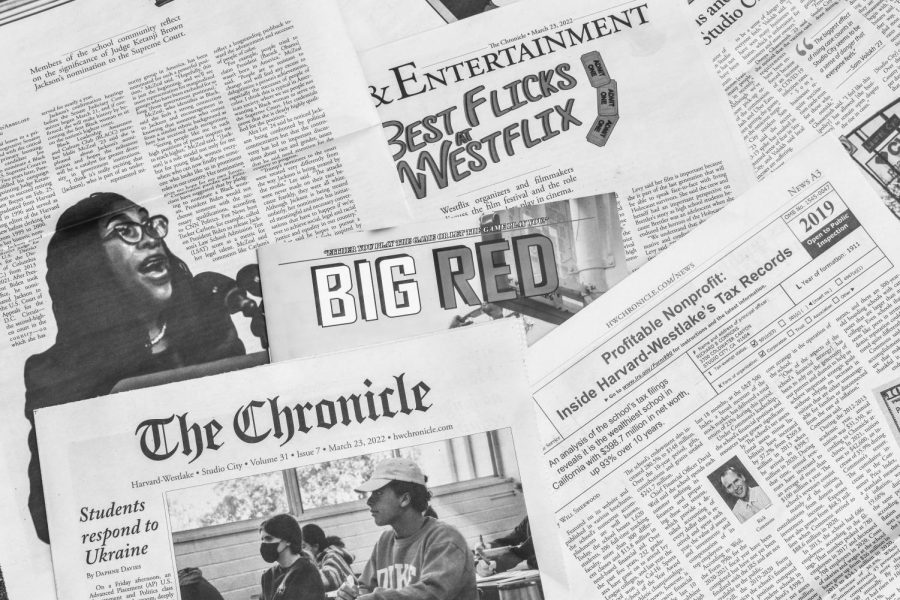Promoting students’ press freedom
Our school is one of few high schools in America with a student-run newspaper that does not have press freedom guarantees.
May 29, 2022
The First Amendment affords crucial protections to student journalists. Students’ right to express themselves freely and share relevant information and perspectives with their communities has been prioritized and protected for decades. Numerous court decisions side with students, affirming their rights to free speech, and fourteen states have adopted “New Voices” laws that further protect student journalists as members of the press. No matter how controversial or damaging an article may be to an institution’s reputation, students’ right to publish a piece is enshrined by our nation’s foremost legal document: its Constitution.
However, unlike most constitutional rights, student press freedom is not accessible to all Americans. Students working for publications at private and independent schools have no legal protection from censorship or punitive action; as such, we are beholden to the will and policies of our school administrations.
Some of these policies significantly limit or completely eliminate schools’ abilities to censor students, but administrations’ right to intervene and restrict student-produced content is always a concern for newspapers at independent schools. At our school, students who write controversial articles bear greater risks than needing to remove content from The Chronicle’s website, which happened once this year. In a previous year, a faculty member attempted to send a student to the Honor Board after reading a Chronicle article they thought was damaging to the school and students’ reputations.
The Chronicle is always open to conversations about and criticism of the content we publish. As a student-run newspaper, we know that we are constantly learning, and we strive to incorporate dissenting voices by publishing corrections and letters to the editor. We want to ensure that everything we publish aligns with journalistic ethics, but we deserve the right to make choices without fear of being censored or potentially punished. This outlook is reflected in the journalism policies of other independent schools with award-winning student newspapers, including The Oracle at The Archer School for Girls, The Phillippian at Phillips Academy Andover and The Pen at Peninsula High School, among others. All of these schools’ administrations have waived their right to censor content or enable punitive action against students for publications. Our school is one of few high schools in America with a student-run newspaper of this caliber that does not have press freedom guarantees.
As we transition to Volume 32 of The Chronicle in the fall and hire Billy Montgomery as our new Chronicle Advisor, our freedom to publish factually based content is more important than ever. In his six years at the school, Communications Department Head Jim Burns fulfilled his role by always supporting our staff while communicating with the school administration. His philosophy was guided by the principle of prioritizing students’ journalistic freedoms. He proposed the signing of a document created by the Private School Journalism Association with the Student Press Law Center this year that would waive the school’s right to take disciplinary actions based on journalistic work or review the newspaper or articles before publication. This agreement would be a signed commitment to students’ freedom of journalistic expression, so long as publications are within a category of speech protected by the First Amendment. The school opted not to sign it last year.
Upon Burns’ departure, we can think of no better way to solidify our right to free and honest reporting than signing this document with the administration. Our school policies have consistently upheld our mission statement, which makes a commitment to educational excellence and purpose beyond ourselves.
Extending these values to student journalism is more than just sensible — it is vital to our education and a necessary expansion of journalistic freedom.































